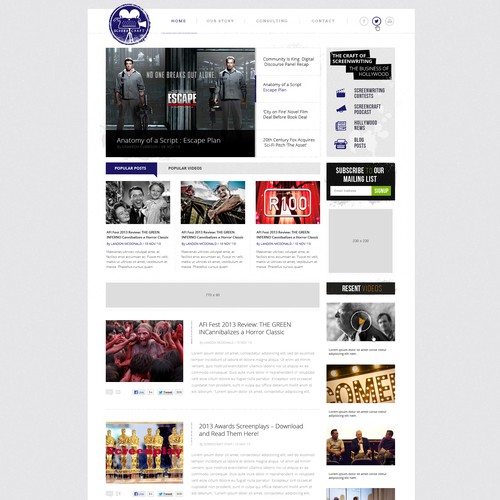News Websites Fundamentals Explained
News Websites Fundamentals Explained
Blog Article
The Main Principles Of News Websites
Table of ContentsNews Websites - QuestionsNews Websites for DummiesNews Websites for BeginnersThe News Websites StatementsThe Main Principles Of News Websites
It was down in the UK and Brazil yet up a few other countries, such as Greece, Bulgaria, and Poland (News Websites). This year, for the very first time, we inquired about the different manner ins which individuals prevent the news and found that around half of avoiders (53%) were trying to do so in a broad-brush or routine way for instance, by shutting off the radio when the information began, or by scrolling past the news in social media sitese.g. scrolling past information, altering networks when information begins. of avoiders check resources less usually. e.g. limitation to specific times of day, shutting off alerts, etc. of avoiders prevent some subjects. e.g. topics that bring down state of mind or increase anxiousness. You said that you attempt to proactively avoid information.

I'm most likely selecting to read even more light-hearted stories than I used to at the minute. M, 51, UK Turning my back on news is the only means I feel I can cope occasionally. I need to purposely make the initiative to avert for the sake of my very own mental health.
More About News Websites
Careful evasion of Ukraine news was highest possible in a number of the nations closest to the problem, strengthening findings from our added study in 2015, not long after the war had actually begun. Our data might not suggest a lack of interest in Ukraine from neighboring countries but instead a desire to handle time or shield mental wellness from the very real horrors of battle.
Contrasting Finland with a politically polarised country such as the USA (see following graph) that is much less influenced by the war, we find a very various pattern of topic evasion. In the USA, we find that customers are most likely to stay clear of topics such as national politics and social justice, where debates over issues such as gender, sexuality, and race have ended up being highly politicised.
American national politics are rather hazardous nowadays. I discover occasionally that I have to detach from stories that simply make me upset. F, 61, USA For some people, bitter and disruptive political discussions are a factor to switch off information altogether, but also for some political upholders, avoidance is often concerning blocking out point of views you don't desire to listen to.

All About News Websites
Some are looking to make information much more easily accessible for hard-to-reach teams, broadening the information schedule, commissioning even more inspiring or favorable information, or accepting useful or solutions journalism that give individuals a sense of hope or personal firm. In our study this year, we asked respondents concerning their passion in these different strategies.
This explains click here to read why tales like Ukraine or national politics do well with news regulars yet can at the exact same time turn much less interested customers away (News Websites). Discerning avoiders are much less thinking about all kinds of information than non-avoiders yet in relative terms they do appear to be more curious about favorable or solutions-based information

Some Known Factual Statements About News Websites
2023). This may hold true in the moment, but in time it seems to be leaving lots of people empty and less satisfied, which might be weakening our connection with and count on the information. Across markets, total trust in news (40%) and trust in the sources people use themselves (46%) are down by an additionally 2 percent points this year.
Through the rear-view mirror, the COVID-19 trust bump is clearly visible in the adhering to chart, though the instructions of traveling later on has actually been mixed. In some situations (e.g. Finland), the count on rise has been preserved, while in others the upturn looks more like a spot in a story of ongoing long-term decline.
Some of the greatest reported levels of media objection are located in countries with highest possible levels of distrust, such as Greece, the Philippines, the United States, France, and the UK. The most affordable degrees of media objection are commonly in those with higher degrees of trust fund, such as Finland, Norway, Denmark, and Japan.
3 Easy Facts About News Websites Shown
This year we asked participants concerning their preferences for text, audio and video when consuming news online. Usually, we find that the bulk still prefer to read the information (57%), instead than watch (30%) or pay attention to it (13%), yet more youthful people (under-35s) are look at more info more most likely to listen (17%) than older teams.
Behind the averages we discover considerable and surprising country differences. In markets with a strong reading practice, such as Finland and the United Kingdom, around 8 in ten still like to review on the internet news, yet in India and Thailand, around 4 in 10 (40%) say they like to see news online, and in the Philippines that proportion mores than half (52%).
Report this page